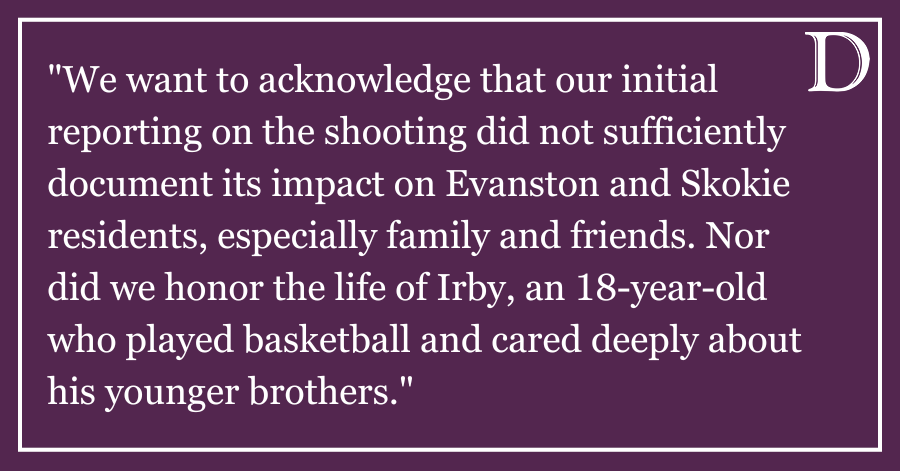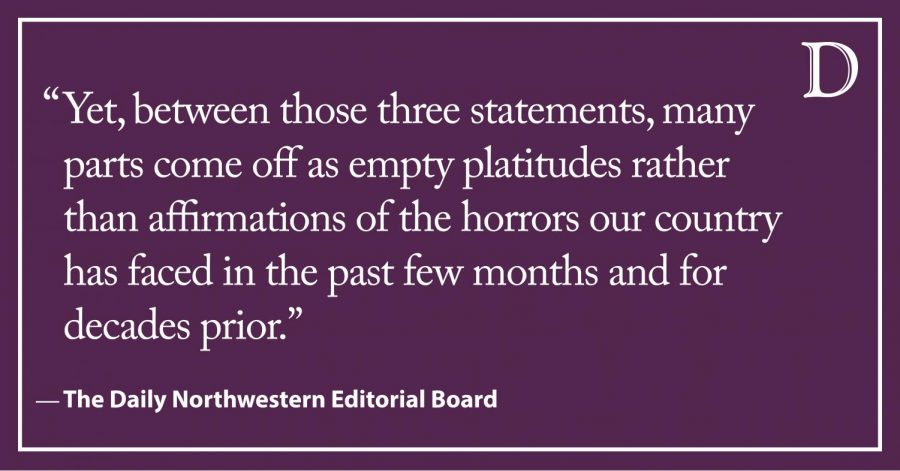Throughout last month’s Associated Student Government election campaigns, each presidential ticket expressed a desire to increase the efficiency of Senate meetings and enhance transparency for students and campus groups. Last week’s Senate meeting brought neither of these feats to fruition. In rejecting nominees for three cabinet positions, Senate has compromised its efficiency and effectiveness, while simultaneously displaying an alarming lack of professionalism in the run-up to the controversial votes. Although we understand the tensions surrounding the nominations are an inherent part of the political process, The Daily believes attendees should have conducted themselves more respectfully at last week’s meeting.
ASG failed to confirm nominees for three cabinet positions: chief of staff, vice president for public relations and associate vice president for diversity and inclusion. The nominations for the former two positions were surrounded by claims of political favoritism by ASG president Ani Ajith and executive vice president Alex Van Atta. Julia Watson, the nominee for vice president for public relations, was Ajith and Van Atta’s campaign manager and chosen over David Harris, Ajith’s opponent in the April election. Chief of staff nominee Stephanie Hong was nominated over Carly Blumenfeld, who previously had the job and publicly endorsed Harris during the election. Though it’s possible political favoritism played a role in these nominations, Ajith and Van Atta ultimately have the right to support cabinet members they believe most align with their viewpoints and support their agenda.
The most troubling part, though, was not the accusation of political favoritism by disgruntled ASG members, but the fact that attendees declared during the meeting their opinions on “better” candidates while the nominees were on the floor. Never mind the fact that no one was supposed to have information on the identity of the other applicants — we expect people to talk — but explicitly pointing out candidates who would better serve the position is blatantly disrespectful to the nominees. The discussion on nominees is meant to focus on evaluating the nominees themselves, not on who could be more suited to the job.
But this all pales in comparison to attendees’ poking and prodding and eventual rejection of Stephen Piotrkowski for associate vice president for diversity and inclusion. Piotrkowski was dubbed the “best candidate” by Hayley Stevens, outgoing vice president for diversity and inclusion, and other influential diversity leaders. Despite this, Piotrkowski was rejected on the basis that he is a white, heterosexual male. Attendees at the meeting claimed that because of these identifying factors, Piotrkowski could not adequately serve Northwestern’s multicultural communities. Some even said his identification with a religious minority and his experiences having a sister who is a lesbian weren’t good enough to make him qualified for the job.
The fact that senators did not take Piotrkowski’s relevant experiences into consideration and rejected him on the basis of race, gender and sexual orientation symbolizes a step backward for our community in diversity conversations. It is ludicrous for members of ASG to expect that the vice president for diversity and inclusion can physically represent every single multicultural community at Northwestern. Recognizing that one’s ability to do a job well is not dependent on physical attributes is a crucial step in creating an open and respectful community, and as leaders on this campus, it is ASG’s responsibility to ensure this occurs. It would be wrong to ban Piotrkowski from reapplying for the position because of this blunder, and we urge him to keep pursuing it in his future years at NU.
Ultimately, Senate needs to take the lead and act much more professionally in order to truly instill a sense of respect and openness at NU. We have a long way to go to improve this university as a student body, and ASG needs to resolve all of its internal political issues and overlook physical biases before senators and cabinet members can effect any meaningful change for the rest of us.








